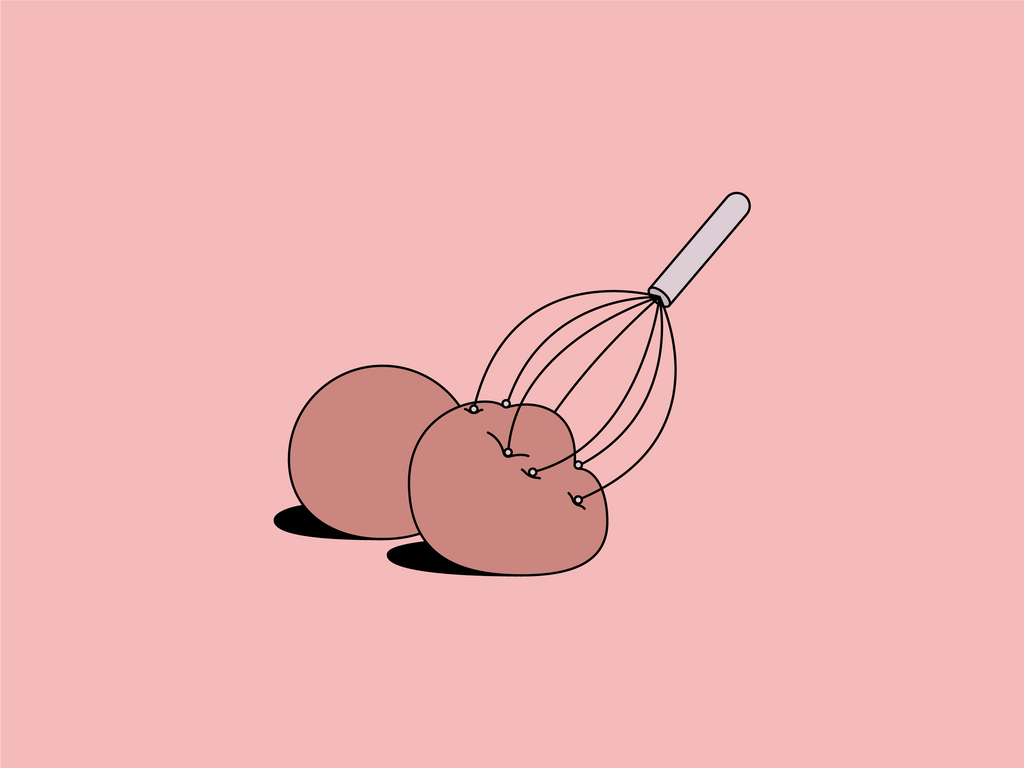The Best Time to Check Your Boobs
- Share this article Copy to clipboard

Whether we’re thinking about it or not, we touch our boobs all the time: when we’re getting dressed, in the shower, during sex (it’s common for partners to detect changes, too), or when we’re just hanging out. With that in mind, it makes sense that approximately 40% of diagnosed breast cancer cases are detected by women who feel a lump.
What we want is for you to put some mindfulness into your routine. When breast cancer is detected early, in the localized stage, the 5-year survival rate is 98%. Early detection is the key. A lot of things factor into early detection—our access to healthcare being a huge one—but there’s something you can do from the comfort of your own home: a monthly breast self-check.
Yes, I did say “monthly breast self-check.” Not only do I suggest checking yourself at the same time every month, but there’s a specific time as well! The best time to check yourself is about a week after your period ends. Think about how your boobs feel during your period, and during PMS. Likely, not great.
pay attention to your menstrual cycle
People sometimes confuse the menstrual cycle with their period. However, your menstrual cycle is actually the ebb and flow of your hormonal fluctuation related to your reproductive health. Just like your uterus, your breasts—and entire body, for that matter—go through a lot of changes every month. The influx of estrogen and progesterone at different times of your cycle also results in lots of changes to your breasts. A week after your period ends, your hormones have leveled out, making it the best time to check yourself.
Why does this matter? First off, you don’t want to check yourself when you’re extra sensitive because… *ouch*. But more importantly, a lot of the other physical signs of breast cancer (there’s more than just breast lumps) are pretty similar to a lot of PMS and period boob changes. Makes things complicated, I know. Some PMS and breast cancer symptoms that are similar are things like breast pain or tenderness, breast swelling, and nipple pain. So, by checking at a time where you already have these types of symptoms, it could result in you either freaking yourself out or missing something worth looking into.
keep track of what you find
Even and especially if you find nothing new! This is why the timing is so important. By checking yourself at this same time once a month, you’ll know exactly how you are supposed to feel at that time in your cycle. We call this your “normal.” By knowing your normal, and checking regularly, you’re more likely to detect any potential abnormalities at the first sign of change.
In short, your menstrual cycle is so much more than just when you get your period. It’s important to reframe how we think about this to better track our overall reproductive health.
think of self-checks as self-care
Now, I don’t want you to think that any breast pain (outside of that PMS/period pain we’ve been talking about) is cancer. A lot of factors can impact breast pain, like not wearing the right bra or even caffeine. We also don’t want you to think of your self-check as looking for cancer. We want you to reframe that thinking and come at it from a place of love. You’re not looking for cancer, but rather, getting to know your body a little bit better.
We always say that checking yourself is loving yourself, and by checking yourself regularly, you’re establishing a special relationship with your body that benefits both your mental and physical health. Through this loving practice, if you notice any changes, you’ll be better equipped to get them checked out right away.
Bree is a vegan, intersectional feminist who is particularly invested in public health and sustainability. She has a degree in Women’s, Gender, and Sexuality Studies from CSULB, where she spent her time turning her passions into academic activism; she now carries out the same work as a content creator and educational program manager. When she’s not busy spreading awareness on living a non-toxic lifestyle, she is most likely chugging coffee, talking to her plants, cooking with arguably too much garlic, or crying about dogs.
Bree is the Check Yourself Program Manager at Keep A Breast is a nonprofit organization with a mission to empower young people around the world with breast health education and support. For more self-check tips and info, you can download the Keep A Breast Check Yourself! app! You can even schedule a monthly reminder, so you never miss a self-check!


